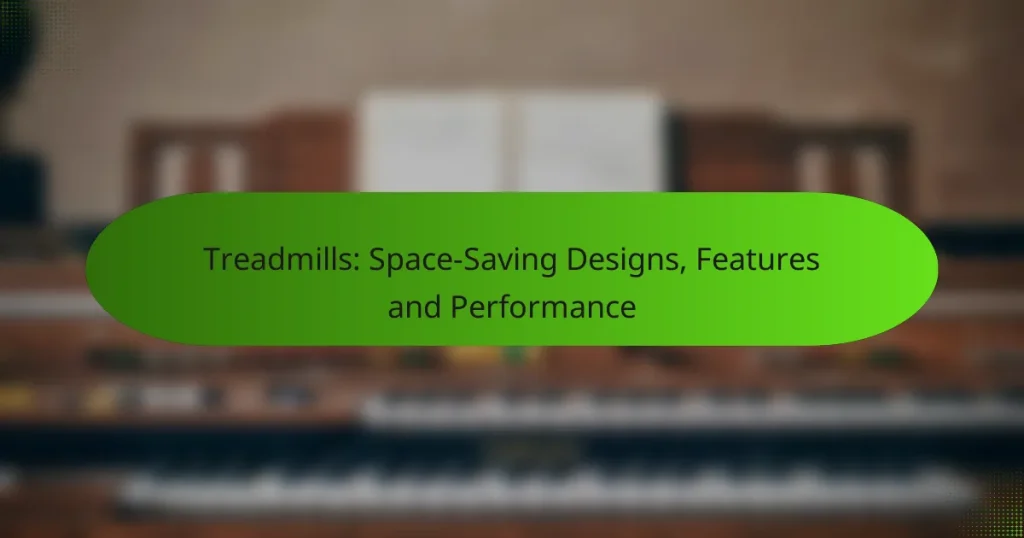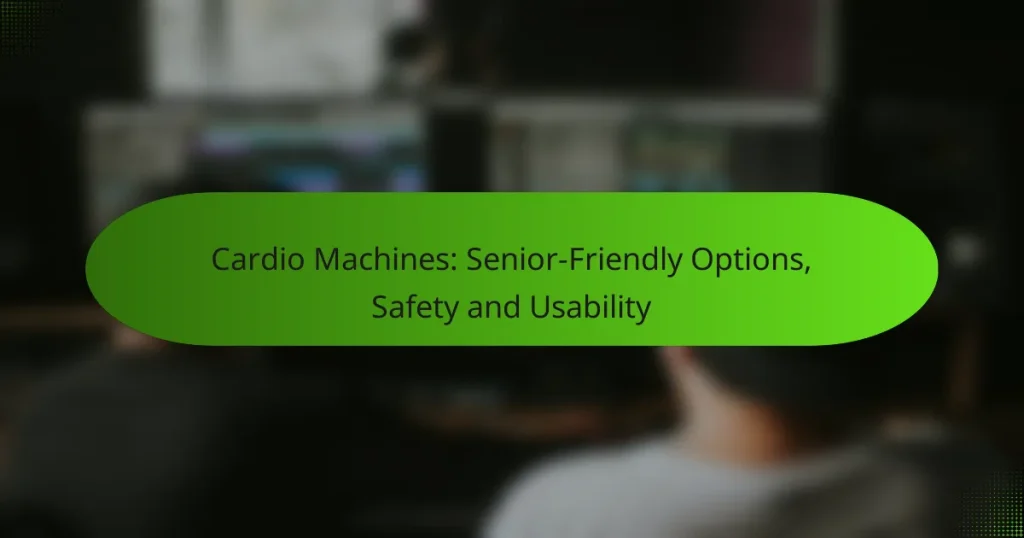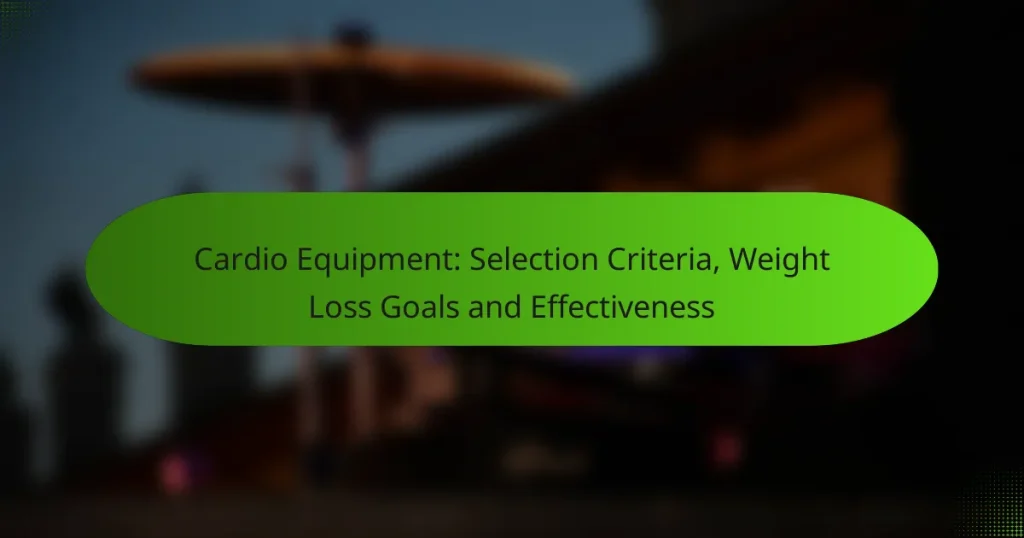Cardio machines for home workouts provide an effective way to enhance your fitness routine while enjoying the convenience of exercising at home. Options like treadmills, stationary bikes, and ellipticals cater to various fitness levels and preferences, allowing you to choose the best fit for your needs. By selecting the right machine based on your space, goals, and budget, you can create a consistent workout routine that supports your cardiovascular health.
Treadmills: Space-Saving Designs, Features and Performance
Stair Climbers: Benefits, Workouts and Fitness Impact
Cardio Machines: Senior-Friendly Options, Safety and Usability
Ellipticals vs. Stationary Bikes: Which Is Better and When to Use
Rowing Machines: Top Picks, Features and Affordability
Cardio Equipment: Selection Criteria, Weight Loss Goals and Effectiveness
What are the best cardio machines for home workouts?
The best cardio machines for home workouts include treadmills, stationary bikes, ellipticals, rowing machines, and stair climbers. Each offers unique benefits and can cater to different fitness levels and preferences.
Treadmills
Treadmills are popular for their versatility, allowing users to walk, jog, or run indoors. They often come with adjustable speeds and inclines, making it easy to tailor workouts to individual fitness goals.
When choosing a treadmill, consider the motor power, deck size, and additional features like heart rate monitors or built-in workouts. A sturdy model typically costs between $500 and $2,500, depending on the brand and features.
Stationary bikes
Stationary bikes provide a low-impact cardio workout that is easy on the joints. They come in two main types: upright and recumbent, with upright bikes resembling traditional bicycles and recumbent bikes offering more back support.
Look for features such as adjustable resistance, a comfortable seat, and a display for tracking metrics. Prices generally range from $300 to $1,500, depending on the quality and technology included.
Ellipticals
Ellipticals combine the movements of running and stair climbing, providing a full-body workout while minimizing impact on the joints. They often feature adjustable resistance and incline settings to enhance workout intensity.
When selecting an elliptical, consider the stride length, stability, and console features. Expect to pay between $400 and $2,000 for a quality machine, with higher-end models offering more advanced technology.
Rowing machines
Rowing machines offer a comprehensive workout that engages multiple muscle groups, including the legs, back, and arms. They simulate the motion of rowing, providing both strength and cardio benefits.
Choose a rowing machine based on the resistance type—air, magnetic, or water—and ensure it has a comfortable seat and sturdy construction. Prices typically range from $250 to $1,500, depending on the features and brand.
Stair climbers
Stair climbers effectively target the lower body, providing a challenging workout that mimics climbing stairs. They are excellent for building strength and endurance while burning calories.
When selecting a stair climber, look for adjustable speed settings and a sturdy frame. Prices can vary from $300 to $1,800, depending on the machine’s quality and additional features.
How do I choose the right cardio machine?
Choosing the right cardio machine involves assessing your available space, fitness goals, and budget. Each factor plays a crucial role in ensuring you select a machine that fits your lifestyle and workout preferences.
Consider available space
Before purchasing a cardio machine, measure the space where you plan to use it. Common machines like treadmills, ellipticals, and stationary bikes require different amounts of room, typically ranging from 2 to 6 square meters.
Consider whether you need a foldable model for easy storage or if a larger, more stable machine is suitable for your space. Ensure there is enough clearance around the machine for safe use and movement.
Assess fitness goals
Your fitness goals will significantly influence your choice of cardio machine. If you’re looking to improve endurance, a treadmill or elliptical may be ideal, while a stationary bike is excellent for low-impact workouts.
Determine whether you want to focus on weight loss, muscle toning, or overall cardiovascular health. This clarity will help you select a machine that aligns with your objectives and keeps you motivated.
Evaluate budget
Cardio machines vary widely in price, from a few hundred to several thousand dollars. Set a budget that reflects your financial situation and consider the long-term investment in your health.
Look for machines that offer good warranties and customer support, as these can save you money on repairs or replacements. Additionally, consider the cost of maintenance and any necessary accessories when evaluating your total budget.
What are the benefits of using cardio machines at home?
Using cardio machines at home offers numerous advantages, including the ability to exercise at your convenience and save on gym costs. These machines provide a structured way to improve cardiovascular health, enhance fitness levels, and maintain a consistent workout routine without the need to travel.
Convenience and accessibility
Cardio machines at home allow you to work out whenever it fits your schedule, eliminating the need to commute to a gym. This accessibility means you can easily fit in a session before work, during lunch, or late at night.
Additionally, having equipment at home can help you maintain a consistent routine, as you are less likely to skip workouts due to time constraints or gym hours. This flexibility can lead to better long-term fitness outcomes.
Cost savings over gym memberships
Investing in cardio machines can lead to significant savings compared to ongoing gym memberships, which can range from tens to hundreds of dollars monthly. Once you purchase the equipment, there are minimal ongoing costs, primarily maintenance and electricity.
For example, a quality treadmill or stationary bike may have an upfront cost but can pay for itself within a year or two when compared to gym fees. This financial benefit is especially appealing for families or individuals who plan to use the machines regularly.
Customizable workout schedules
With cardio machines at home, you can tailor your workout schedule to your personal preferences and goals. This customization allows you to adjust workout intensity, duration, and frequency based on your fitness level and available time.
Moreover, many machines come equipped with programmable settings and workout plans, enabling you to challenge yourself progressively. This adaptability helps keep your workouts engaging and aligned with your fitness objectives.
What features should I look for in a home cardio machine?
When selecting a home cardio machine, prioritize features that enhance your workout experience and cater to your fitness goals. Key aspects to consider include adjustable resistance levels, built-in workout programs, and heart rate monitoring capabilities.
Adjustable resistance levels
Adjustable resistance levels allow you to customize the intensity of your workouts, making it easier to progress as your fitness improves. Look for machines that offer a range of resistance options, typically from low to high, to accommodate different fitness levels and workout types.
For example, a stationary bike may feature resistance settings from 1 to 20, enabling you to start at a comfortable level and gradually increase the challenge. This adaptability helps prevent plateaus and keeps your workouts engaging.
Built-in workout programs
Built-in workout programs provide structured routines that can guide your training sessions. These programs often vary in duration, intensity, and focus, catering to different fitness goals such as weight loss, endurance, or interval training.
Many machines offer preset programs that automatically adjust resistance and duration, allowing you to follow along without needing to plan your workout. This feature can be particularly beneficial for beginners or those looking for variety in their routines.
Heart rate monitoring
Heart rate monitoring is essential for tracking your cardiovascular performance and ensuring you are exercising within your target heart rate zone. Look for machines equipped with sensors or compatibility with heart rate monitors to provide real-time feedback during your workouts.
Monitoring your heart rate can help you optimize your training intensity, making it easier to achieve your fitness goals. Aim for machines that display heart rate data clearly, allowing you to adjust your effort as needed for maximum effectiveness.
How much do home cardio machines cost?
Home cardio machines typically range from a few hundred to several thousand dollars, depending on the type and features. Basic models may start around $200, while high-end options can exceed $2,000.
Entry-level options
Entry-level cardio machines are budget-friendly and ideal for beginners. These machines, such as basic treadmills, stationary bikes, and elliptical trainers, generally cost between $200 and $600.
When choosing an entry-level machine, consider factors like size, weight capacity, and available workout programs. While they may lack advanced features, they often provide essential functions for effective home workouts.
Mid-range machines
Mid-range cardio machines offer a balance of quality and features, typically priced between $600 and $1,500. These machines often include better build quality, more workout programs, and enhanced technology, such as Bluetooth connectivity and interactive displays.
Investing in a mid-range machine can provide a more enjoyable workout experience. Look for models with adjustable resistance, heart rate monitors, and warranty options to ensure durability and satisfaction.






